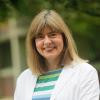Get ready to embark on an exhilarating journey through contemporary world cinemas from 2000 to the present! In this course, we'll delve into the narrative tradition of feature filmmaking, exploring a diverse range of cinematic styles, story traditions, authorship, genre conventions, and politics of representation from around the globe. You'll become immersed in the world of film as we closely analyze camera work, editing, art direction, narrative, and style, gaining a deep understanding of the power of visual storytelling. From the surreal cityscapes of France to the stark landscapes of Australia, from the contemporary social tensions in Iran to the dual influences of tradition and modernity in African film, we'll uncover the rich tapestry of world cinema, delving into the historical, political, and cultural contexts that have shaped these significant films. We will watch and analyze works from France, Spain, Mexico, Mali, Kenya, Iran, Norway, China, South Korea, India, Brazil, Great Britain, and others and read scholarly essays and reviews that explore film history and criticism. Keywords:world cinema, narrative film, storytelling, genre, authorship


